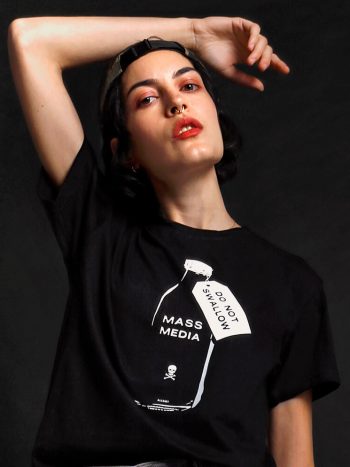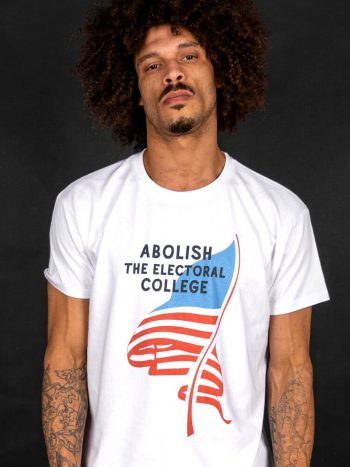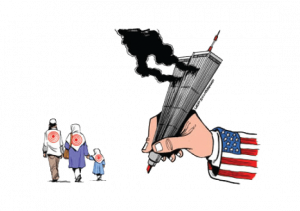In the wake of the 2012 presidential elections, a number of political commentators highlighted the fact that the Mitt Romney campaign failed to effectively utilize social media to engage with undecided voters, and thereby lost a race for the White House that was – arguably – winnable. President Obama, a more tech-savvy politician than the more traditional Romney, ultimately won comfortably, and in doing so proved that social media, along with old school political propaganda, was now an integral part of the political process. Oh how different things looked in 2016!
In 2012 few people could have guessed that the next election would be partially decided by bots and fake social media accounts. Donald Trump’s relentless Tweeting was perhaps to be expected, but the level of outside interference of foreign trolls and bots could not have been anticipated.
Russian bots in the 2016 election
Donald Trump’s bid for the White House caused hopes to run high in Moscow for a possible reconciliation between the United States and the Russian Federation. Relations between the two countries have been frosty since the recovery of Russian power under Vladimir Putin, and later worsened due to Russian espionage operations on American soil, as well as military activity in Georgia, Ukraine and Syria.
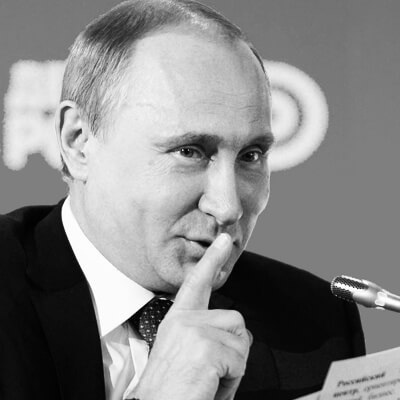
- Russia’s invasion of Georgia in 2008 caused the deaths of more than 730 people, with almost 2,000 wounded and 192,000 people displaced.
- The ongoing Ukrainian civil war, in which Russia is directly involved, has claimed the lives of approximately 13,000 people and internally displaced 1.5 million Ukrainians.
- Moscow continues its support for the Syrian regime of Bashar al-Assad, whose government has been indicted of committing war crimes.
The Kremlin’s faith in Trump was mostly due to the former Apprentice host’s campaign rhetoric; he expressed admiration for Putin more than once, and made threats to withdraw the United States from NATO (the international alliance being a continual thorn in Russia’s side). Famously, Trump’s election was toasted with champagne in the Kremlin on the night of his victory.
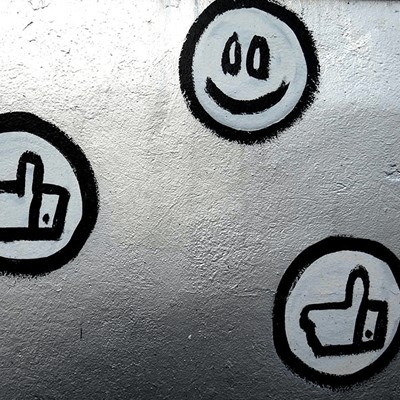
- Twitter has stated that in excess of 50,000 Russian-linked profiles posted automated content concerning the 2016 election, almost all of which criticized the Democratic Party’s nominee, Hillary Clinton.
- The bots’ posts are thought to have reached almost 700,000 Americans.
- Social media posting by bots are believed to have given Donald Trump’s campaign 3.23% of the votes cast for the Republican nominee.
Russian bots across the pond
Bots on social media have not just been used to influence American elections. The British referendum to leave the European Union in 2016 was just as divisive in the UK as Trump’s campaign for the White House in the US, and as with America, the Kremlin saw plenty of opportunities to exploit rifts in the British public. The European Union itself, meanwhile, has frequently found itself at odds with Russian policies, being particularly hard towards Moscow over its military interventionism in Ukraine and Georgia, and so Brussels has become almost as much of a target as Washington.
Russia has also been buoyed by new far-right parties and movements across Europe, many of which have a more sympathetic stance to the Kremlin; indeed, Nigel Farage, one of the principle proponents of the British movement to leave the EU, expressed public praise for Vladimir Putin. In addition, Dominic Cummings, the architect of Brexit now working as an adviser to British Prime Minister Boris Johnson, spent much of the late 1990s living in Russia itself, and has also pushed for a more Russian-friendly UK foreign policy.

- As with the US presidential elections which took place six months later, the Brexit vote divided the UK almost exactly in half, resulting in a 51% to 49% vote in favor of the Leave faction. Social media bots were found to have added 1.76 percentage points to the Leave vote.
- Facebook admitted that it had linked Brexit-related ad purchases to Russian accounts, which were used to spread political misinformation.
- It was found that close to the day of the vote, Russian bots on Twitter sent out over 45,000 pro-Brexit Tweets.
There were several reasons for Russia to assist the UK in leaving the European Union, most of which pertain to weakening Brussels and the institution of the European Union itself. The EU is an integral part of the Western world, and while the Western media may dub the new era of frosty relations between Russia and the West as ‘the new Cold War’, for President Putin – himself a former KGB operative – it does not seem as though the Cold War truly ended.

- It is highly likely that Moscow is hoping that the success of the Brexit vote will encourage far-right parties and movements across Europe to strive for electoral success and perhaps initiate their own exits from the European Union.
- Although Britain has been a firm critic of Russia in recent years, the post-Brexit political chaos means that the country has become more focused on internal matters and less on foreign policy.
- A divided and weakened Europe will be less likely to oppose Russian aggression in the near abroad.
What's in it for them?
But perhaps Russia does not really care who wins, providing Americans remain divided and mistrustful of each other. After all, in the post-Trump world, anyone is able to dismiss any and all criticism or allegations of foreign influence as ‘fake news’, a ‘witch hunt’, or a ‘hoax’, while hard-line Democrats are barely able to believe anybody at all would vote for Trump, and that practically every Trump voter is a Russian plant or bot.
Chaos is exactly what Moscow wants – the more focused on internal division America is, the less likely it will be to seriously counter Russian aggression in the Middle East and the former Soviet Union.
Russian bots in the 2020 election
Given the Kremlin’s proven interference in the 2016 election cycle and in the Brexit vote, fears of a repeat event have been rampant in the following years – fears that have now been realized. Yet unlike during the previous election in which the Kremlin aggressively backed the Republican Party, so far Russian-affiliated bots have been found to be trolling in support of Bernie Sanders in the hopes of securing the Vermont Senator the presidential nomination for the Democratic Party.

- In October 2019, Facebook discovered an online campaign dating from a year prior that had proven links to Russia. Accounts that were part of the operation posed as either Trump or Sanders supporters, but all were highly critical of former Vice President Joe Biden.
- Intelligence officials have informed Senator Sanders that the most aggressive of his online supporters may not truly be Americans.
- President Trump, meanwhile, has dismissed the possibility of renewed Russian interference in the American political system.
It may seem something of a turnaround for the Kremlin to go from backing a President who has won the hearts and minds across the spectrum of America’s right-wing to also lending aid to perhaps the most left-wing Democratic frontrunner in US history. It may be especially surprising given Bernie Sanders’ flat description of President Putin as an ‘autocratic thug’ and a ‘dictator’. It seems Russia would have undoubtedly preferred to see Sanders in the White House rather than Joe Biden.
- The USA spends more on its national defense than the next six top-spending countries combined. Senator Sanders is committed to reducing American military spending and using the government’s funds for social welfare endeavors.
- Sanders’ dream is to revolutionize social care in the United States – especially its healthcare system. His critics often demand to know from where Sanders will get the money to fund such an expensive and extensive project, but the most logical answer is the military.
Are the Russians involved with bots elsewhere?
Other issues along the left-right divide have also seen social media bot activity, but whether these are Russian-affiliated accounts remains to be seen. It is, however, highly likely: Moscow is very aware of the political split that separates political perspectives on climate change, with Democrats arguing in favor of environmental conservation and Republicans more skeptical. Given the Kremlin’s tendency to exploit any fracture in Western social and political cohesion, it is well within the realms of possibility that its extensive social media campaigns have also been used in the climate change debate.
- The NATO alliance, which remains a particular point of hatred for Moscow, would virtually all but collapse without the extensive American input it enjoys. The Kremlin undoubtedly had high hopes after Trump threatened to withdraw the US from NATO completely; perhaps it sees massively reduced military spending under a Sanders presidency as the next best thing.
- Biden, meanwhile, has pledged to actually increase military spending. A Biden presidency would likely be foreign-policy oriented, but if Sanders were to win the White House, the American government would probably have more of a domestic focus.
- An average of 25% of all daily Tweets on climate change are believed to come from social media bots.
- Researchers discovered that accounts controlled by bots praised Donald Trump’s actions after the United States withdrew from the Paris Agreement on climate change.
- These bots also spread misinformation about issues pertaining to global warming and environmental conservation; 38% of all Tweets skeptical of the science behind climate change were found to come from bots.
It has yet to be conclusively proven that Russia is also behind the bots spreading misinformation over climate change, but given the Kremlin’s demonstrable meddling in Western political affairs, it is reasonable to conclude that for Moscow, the chance was perhaps too good to miss. Given the Russians’ success in interfering in both the Brexit vote and the Trump campaign, it can only be assumed that bot-controlled social media accounts are not going away for the foreseeable future, and are now an integral part of anti-democratic arsenals.
PROPAGANDA T-SHIRTS
-
$28Add to WishlistAdd to Wishlist
-
$28Add to WishlistAdd to Wishlist
-
$28Add to WishlistAdd to Wishlist



